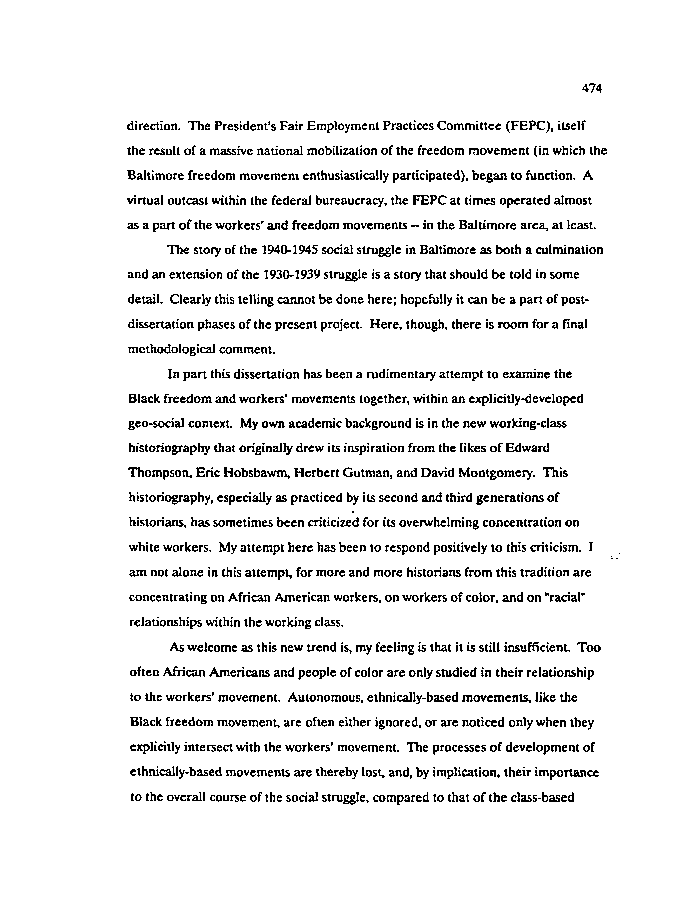|
474
direction. The President's Fair Employment Practices Committee (FEPC), itself
the result of a massive national mobilization of the freedom movement (in which the
Baltimore freedom movement enthusiastically participated), began to function. A
virtual outcast within the federal bureaucracy, the FEPC at times operated almost
as a part of the workers' and freedom movements — in the Baltimore area, at least.
The story of the 1940-1945 social struggle in Baltimore as both a culmination
and an extension of the 1930-1939 struggle is a story that should be told in some
detail. Clearly this telling cannot be done here; hopefully it can be a part of post-
dissertation phases of the present project. Here, though, there is room for a final
methodological comment.
In part this dissertation has been a rudimentary attempt to examine the
Black freedom and workers' movements together, within an explicitly-developed
geo-social context. My own academic background is in the new working-class
historiography that originally drew its inspiration from the likes of Edward
Thompson, Eric Hobsbawm, Herbert Gutman, and David Montgomery. This
historiography, especially as practiced by its second and third generations of
historians, has sometimes been criticized for its overwhelming concentration on
white workers. My attempt here has been to respond positively to this criticism. I
am not alone in this attempt, for more and more historians from this tradition are
concentrating on African American workers, on workers of color, and on "racial"
relationships within the working class.
As welcome as this new trend is, my feeling is that it is still insufficient. Too
often African Americans and people of color are only studied in their relationship
to the workers' movement. Autonomous, ethnically-based movements, like the
Black freedom movement, are often either ignored, or are noticed only when they
explicitly intersect with the workers' movement. The processes of development of
ethnically-based movements are thereby lost, and, by implication, their importance
to the overall course of the social struggle, compared to that of the class-based
|

